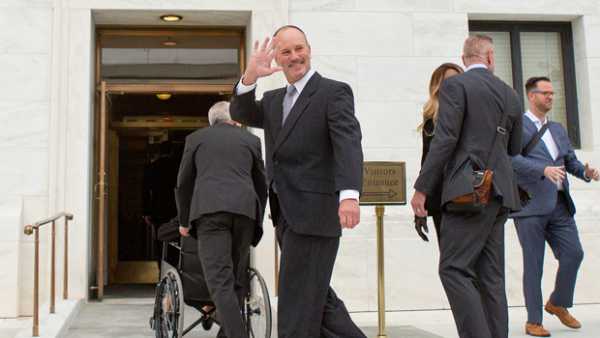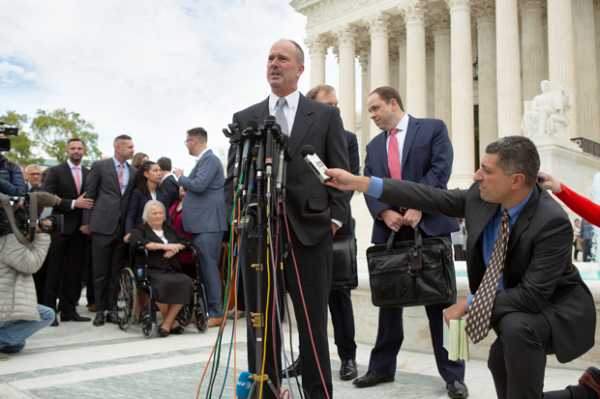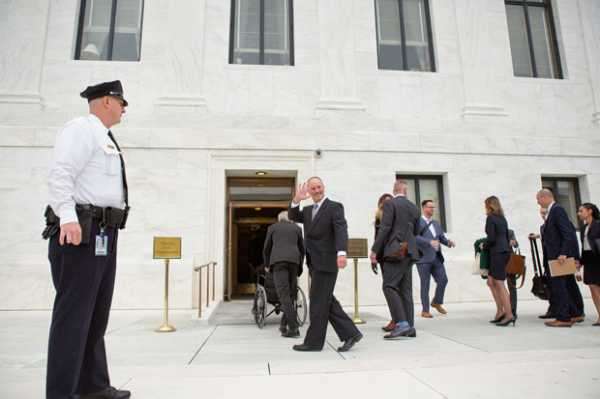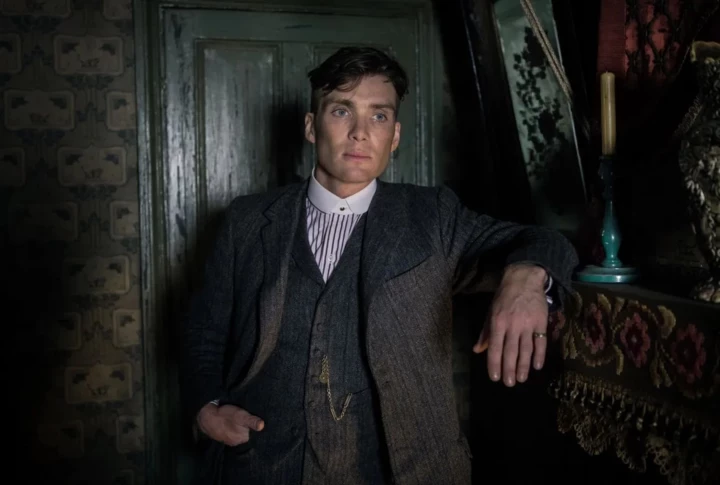
HollywoodLife spoke EXCLUSIVELY with Gerald Bostock who made history after his landmark Supreme Court ruling protecting LGBTQ employees in the workplace.
The gay man whose case was pivotal in the U.S. Supreme Court ruling banning discrimination against LGBTQ people in the workplace says he is “elated” by the result. Gerald Bostock, 56, made history on June 15 when the Court decided in a 6-3 ruling that Title VII of the Civil Rights Act of 1964, which makes it illegal for employers to discriminate because of a person’s sex, race, color and religion, also covers LGBTQ discrimination in the workplace. HollywoodLife speaks EXCLUSIVELY with Gerald who shares his excitement over the landmark decision.
“Last Monday morning, I did my normal routine. I was actually on a work conference call and also watching the SCOTUS blog put up on the television in our den, my partner and I,” Gerald says of the morning he learned of the court’s ruling after he was fired in 2013. He was working in Clayton County, Georgia as an award-winning child welfare services coordinator for the Court Appointed Special Advocates, or “CASA” program when he says he was fired for conduct “unbecoming” of a county employee shortly after he began participating in a gay recreational softball league.

Gerald Bostock speaks to reporters on the steps of the U.S. Supreme Court building on Oct. 8, 2019. (Photo credit: ACLU – Allison Shelley)
“When I saw that somebody put on the blog that they were about to announce Bostock vs. Clayton County, my heart stopped. I was like, ‘Oh my gosh.’ As I started to read the words as they continued to put information on the blog, I just was elated. It was like a kid on Christmas morning or a kid in a candy store,” Gerald continues. “I embraced my partner, we had a very celebratory emotional moment, because it hit me that, not only for sexual orientation, but also gender identity.”

Gerald Bostock entering the Supreme Court while he fought for equal protection for LGBTQ employees. (Photo credit: ACLU – Allison Shelley)
“Luckily my great attorney, Tom [Thomas J. Mew] was on the phone with me moments later, and he did confirm and verify for me what I was reading was true and correct. So yeah, it’s been an amazingly crazy time here, and I wouldn’t trade it for anything. It’s finally starting to sink in a little bit and I’m processing all of it because it is a lot to take in.”
The ruling focused on three related cases involving employees who said they were fired because of their sexual or gender identity: Gerald, along with Aimee Stephens, a transgender funeral director, and Donald Zarda, a gay skydiving instructor. Gerald is the only plaintiff still alive to see the case’s outcome.
Gerald began working for Clayton County in 2003 and was proudly making a difference in his community. “I advocated for child abuse and neglect that came through the juvenile court system. And it was my dream job, I mean I absolutely loved working with the children and it was my passion,” he says. But all that changed when the County learned Gerald was gay and had been encouraging friends in his gay softball league to volunteer for CASA. “This was at a time that I was recovering from prostate cancer and I joined the league to prove to myself, not only physically that I could do it, but to prove to myself mentally, I could do it. And within months from that, I’m fired,” he says. “My termination paperwork stated, ‘Conduct unbecoming of Clayton County.’ And I was very quickly escorted off the property.”
Immediately following his termination, Gerald recalls his emotional state. “There was anger, frustration, sadness,” he explains. “There was a mortgage that I had to pay for, a car loan. You have bills to pay. But when this happened to me, again, I knew I had done nothing wrong. And because of the timeline I told myself, ‘I’m not going to let them knock me down and keep me down.’ So I immediately went into that mode of starting the process that I needed to take to get to this point.”
“And I’ve remained optimistic from day one,” Gerald says. “It was challenging and it was a struggle. I went several months without any income. I filed for unemployment benefits, and so forth and I do have a great job now that I really love as a mental health counselor at my local hospital here in the Atlanta area. Though I’m no longer making a difference in the lives of children, I feel as though I’m making a difference in the lives of adult mental health patients.”
As for having this victorious decision come down during Pride month, Gerald says, “It makes it that much more special. And when I’ll tell you that I am proud, I’m proud of who I am and I’m proud of the man I have become. And then, in this moment of history — now, that’s one thing we don’t have to worry about; going to work fearful of losing our job because of who we are, who we love, or how we identify.”
Sourse: hollywoodlife.com







